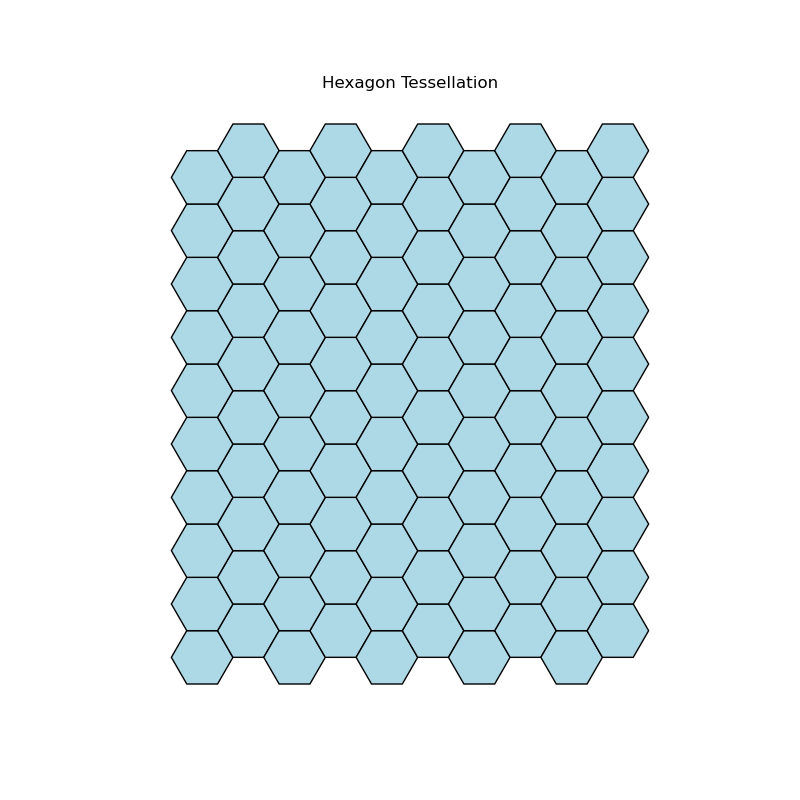
Tessellation means filling a plane or space without any gaps or overlaps with one or more shapes (tiles). In Korean,
it is also called tessellation, tessellation, and tiling.
Key Features
• No gaps or overlaps: The shapes should be connected without overlapping each other and without any gaps.
• Repetition and regularity: The same shape or multiple shapes are arranged repeatedly to form a pattern.
• Filling a plane or space: It is mainly done on a plane, but can also be applied in three-dimensional space.
Examples of tessellations in real life
• Bathroom or floor tiles, sidewalk blocks
• Hexagonal structures of **honeycombs**
• Ancient mosaics and decorative patterns of Islamic architecture
• Artworks by Dutch painter M.C. Escher
Mathematical meaning and conditions
• The sum of the angles that meet at a point must be 360 degrees to fill a plane without any gaps.
• Representative shapes that can be tessellated are regular triangles, squares, and regular hexagons.
Summary
Tessellation is a mathematical and artistic concept that covers a plane or space without any gaps through the repetition and regularity of shapes. It is widely used in various fields such as architecture, art, and nature.
'인공지능 수학' 카테고리의 다른 글
| Convergence and Divergence (1) | 2025.07.11 |
|---|---|
| Philosophiæ Naturalis Principia Mathematica (0) | 2025.07.10 |
| What is quantum mechanics? (0) | 2025.07.10 |
| Dimension (1) | 2025.07.09 |
| What is pi Song? (6) | 2025.07.06 |



